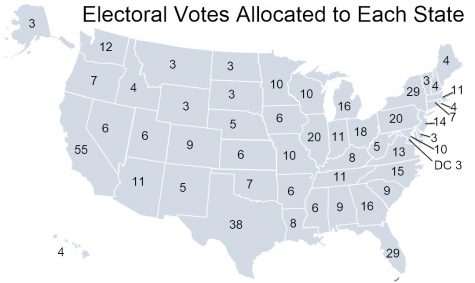19th Amendment Failed Women of Color
October 1, 2020
On August 18, 1920, 35 out of the 48 states had ratified the 19th Amendment, missing the three-fourths majority by just one vote. Out of the four states called to hold a legislative voting session on the amendment, Tennessee was the only state that agreed, quickly becoming a pivotal battleground for women’s rights where both suffragists and anti-suffragists fought for the support of the state’s congress. If Tennessee voted against ratification, the process would have to be completely restarted in the next United States Congressional session, setting suffragists back for at least another year if they were lucky. The proposed amendment passed in the Senate but was stalled in the House of Representatives. For a moment, it appeared as though the vote would be a tie until one 24-year-old Republican Representative named Harry T Burn said “aye.” When asked later why he decided at the last minute to change his vote, Burn revealed that his mother had sent him a letter asking him to vote in favor of the 19th Amendment.
Burn’s mother was not a major political player in the suffragist movement, yet she and other forgotten women changed the political landscape through their small actions. As we celebrate the centennial anniversary of the ratification of the 19th Amendment, we should remember how easy it was, and still is, for women to be overlooked, especially women of color whose roles in history have been largely ignored.
In history classes, the brief glimpse at the women’s rights movement contains names like Susan B. Anthony and Elizabeth Cady Stanton, praising their dedication to the suffrage movement. However, history fails to recall that these two women chose to pander towards white southerners and that even after Frederick Douglass, who was both an abolitionist and a suffragist, defended women’s rights at the Seneca Falls Convention, Anthony and Stanton opposed the 15th Amendment simply because it did not include women.
Even after gaining the right to vote, black women in the south and Latinas in the south-west were still banned from voting and gained no aide from the current major suffragist organizations. Furthermore, we, as a nation, have forgotten suffragists such as Frances Ellen Watkins Harper, who spoke at multiple conventions around the nation and was one of the first black women published in the USA, or Ida B Wells who reported on lynchings and helped found the NAACP and the National Association of Colored Women.
We must recognize the importance these women played in our society and make it our goal to discover more about them than what can be covered in a few sentences. The 19th Amendment was ratified because of the actions of the many women behind the scenes, yet even after a hundred years we still refuse to credit women of color with success.





